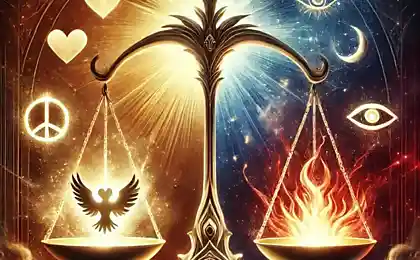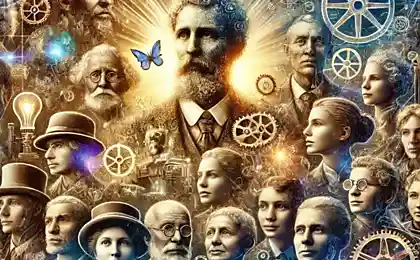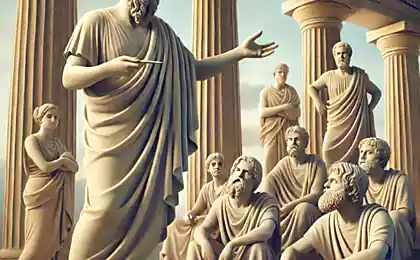230
A test on a person with a capital letter: which is more important - ideals or a person?
A human test with a capital letter
Which is more important: ideals or man? The main question that determines true humanity
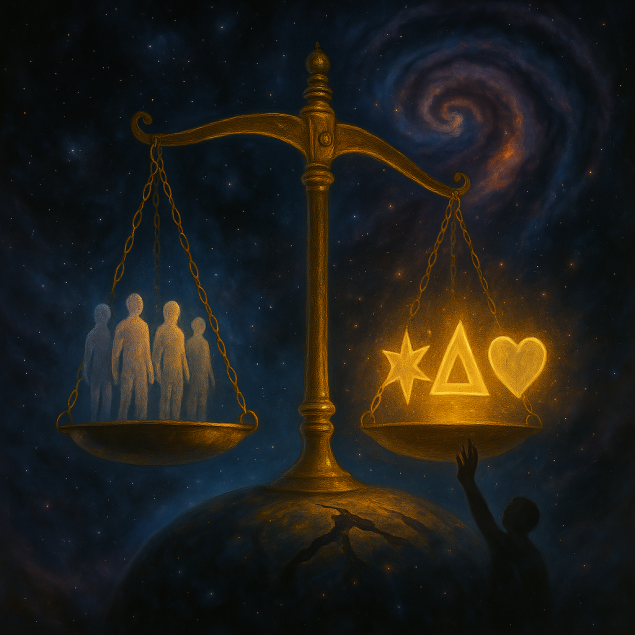
There is one question that can reveal the true essence of a person better than any psychological test. It sounds simple, but its simplicity is deceptive. This question forces us to look into the very depths of our soul and honestly answer: what is more important to us – our principles and ideals or a specific living person next to us?
The question is, are you willing to sacrifice your ideals for the salvation or well-being of a particular person?
The Anatomy of Choice between Ideals and Humanity
Human history is full of examples of people facing this painful choice. A doctor who must lie to the authorities to save a patient. A journalist who can destroy the reputation of an innocent man for the sake of the "highest truth." A parent willing to steal medicine for a dying child.
“Man becomes man only when he chooses between abstract justice and living pain” is the modern ethical dilemma that defines our age.
Psychological research shows a surprising pattern: people who choose a person over principles at a critical moment show higher levels of empathy and emotional intelligence. However, this does not mean that ideals are not important – it is about priorities in extreme situations.
Three Types of Moral Personalities
Principalist A person for whom ideals are sacred. He would rather let his loved ones suffer than violate his beliefs. Such people often become revolutionaries, reformers, but can be violent in their personal relationships.
Humanist Someone who will always choose a person. Ready to lie, steal, break the law to save a particular person. These people often become doctors, social workers, but can be inconsistent on big issues.
Synthetic type A rare person who is able to find a creative solution that does not require the sacrifice of either ideals or a person. This is the highest level of moral development, but it is achieved through years of inner work.

Practical scenarios for self-testing
Test Scenario 1: The Family Dilemma
Your close friend asks you to lie to his wife about where he was last night. He didn't cheat, but he was in a place that could cause suspicion and a family scandal. Would you lie to save their marriage?
Test scenario 2: Professional ethics
You work for a company and find out that your colleague, the only breadwinner in a family with three children, has committed a serious violation. By the rules, you have to report it, which will lead to his dismissal. What do you want?
Test Scenario 3: Public Debt
You know information that could avert a public catastrophe, but revealing it would destroy the life of an innocent man who happens to be embroiled in the situation. Will you release this information?
The scientific basis of moral choice
Neurobiological studies have shown that different parts of the brain are activated when making moral decisions. The prefrontal cortex is responsible for rational principles, and the limbic system is responsible for emotional attachment to specific people. People with more empathy physically feel the pain of others, making it impossible for them to sacrifice a person for abstract ideas.
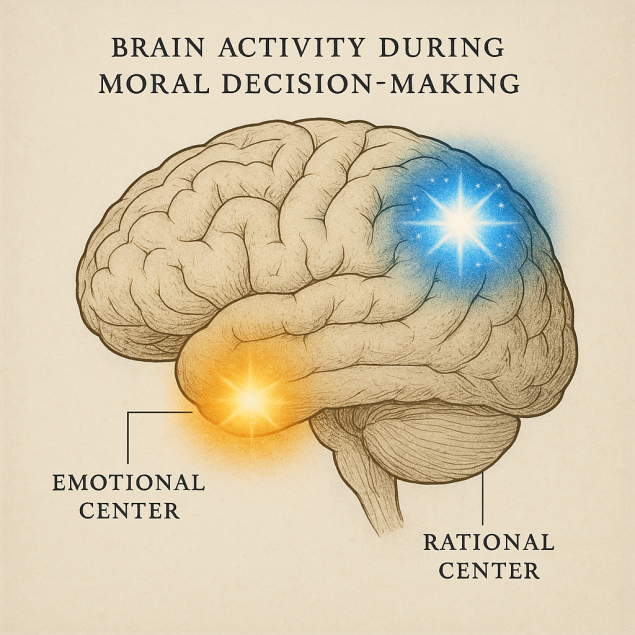
Research by Joshua Green of Harvard University has shown that people who choose a utilitarian solution in moral dilemmas (sacrificing one for many) show reduced activity in areas of the brain responsible for empathy.
Recommendations for developing moral maturity
1. Practice of perspective thinking
Regularly imagine yourself in the place of all participants in the moral dilemma. How does everyone feel? What are their needs? This develops the ability to make synthetic solutions.
2. Compassion meditation
Take 10 minutes daily to reflect on the suffering of specific people in your environment. It enhances empathic abilities and makes abstract principles more humane.
3. The Journal of Moral Elections
Write down situations where you have had to choose between principles and people. Analyze your decisions in a month or two. Do you see patterns? Are you happy with the results?
4. Creative Search for the Third Way
Before making a decision in a moral dilemma, take some extra time to find an alternative. There is often a solution that does not require sacrifice.
When ideals become justifications for cruelty
History has seen many instances in which adherence to abstract ideals has led to monstrous cruelty. The Inquisition burned people “for the glory of God,” revolutionaries killed “enemies of the people” for the sake of a bright future, ideologists justified genocide by “cleansing the race.”
A sign of moral maturity: The ability to doubt the correctness of one’s ideals, if their implementation requires the infliction of suffering on specific people. True ideals serve man, not vice versa.
Practical life hacks for complex situations
The 24-hour rule: In a serious moral dilemma, give yourself a day to think, if possible. Emotions will subside and you will be able to find a wiser solution.
Grandchild test: Imagine that 50 years from now, your grandchildren will know about your choices. What solution can you explain to them without shame?
Minimum harm principle: If harm cannot be avoided, choose an option that causes less suffering to specific people.
Conclusion: The Path to True Humanity
A human test with a capital letter does not have the only correct answer. It is designed to make us better understand ourselves and our values. However, experience shows that those who at a critical moment choose a living person over an abstract principle are more likely to create around themselves an atmosphere of trust, love and true morality.
True humanity is not manifested in blind adherence to rules, but in the ability to see the uniqueness of each situation and each person. It requires the courage to sometimes break the letter of the law in order to preserve its spirit of love and compassion for living people.
Glossary
Utilitarianism
The ethical theory that right is the action that brings the greatest benefit to the greatest number of people.
Empathy.
The ability to understand and share the feelings of another person, to “enter his position.”
A moral dilemma
A choice between two or more ethically significant alternatives, each with both positive and negative consequences.
Deontological ethics
An ethical direction that asserts that the morality of an action is determined by its conformity to rules and principles, not by its consequences.
Emotional intelligence
The ability to recognize, understand and manage your own emotions as well as those of others.
limbic system
The complex of brain structures responsible for emotions, memory and motivation.
Prefrontal cortex
The area of the cerebral cortex responsible for planning, decision-making, and behavior control.
The human test with a capital letter: ideals or people?
Edward Mitri Karkar: Pioneer in Cold War-Era Telecommunications Engineering
